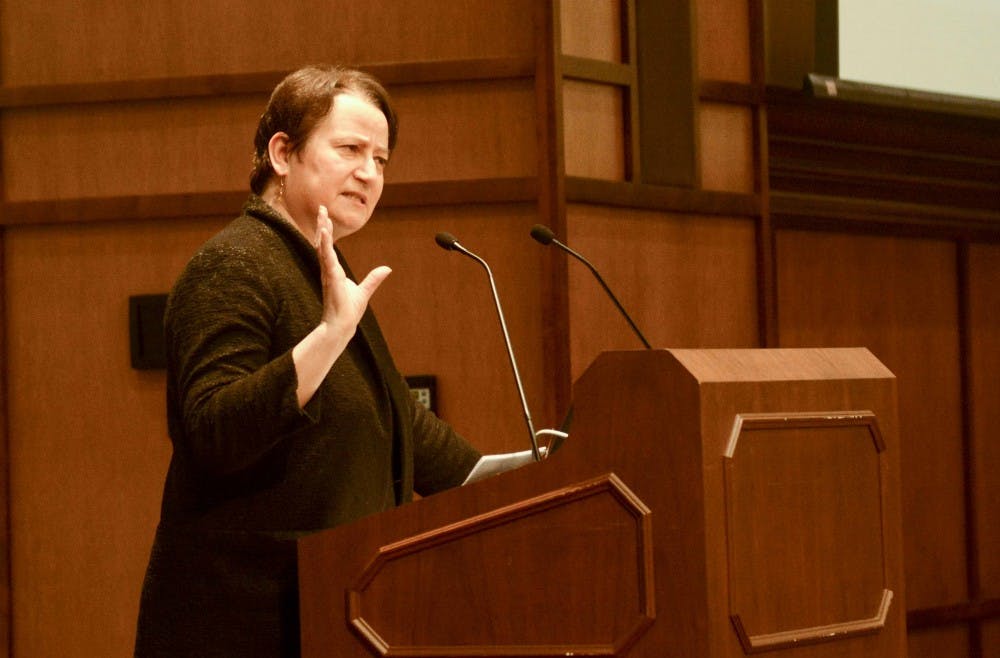While some IU fans gathered in Assembly Hall to watch the rivalry game between the Hoosiers and the Purdue Boilermakers, others circled around tables in Franklin Hall to discuss the rivalry between facts and fake news.
A panel, “Fake or Fact? The Search for Real News in 2017,” took place Thursday night in President’s Hall as a part of the Hot Topics Series.
The series, by the Office of the Provost, is a yearlong program creating conversations about culture and community.
“Upholding the value of news, the authenticity of news, the importance of facts — this is absolutely fundamental, I believe, to our society,” said Roger Cohen, IU Poynter Center Chair and New York Times columnist.
This panel was moderated by Tom French and Elaine Monaghan, professors of practice in the Media School.
Panelists were Cohen; Caryn Baird, a contributor to Politifact and senior news researcher at the Tampa Bay Times; and Filippo Menczer, a professor in the School of Informatics and Computing who helped develop the web-based project Hoaxy to detect fake news.
Menczer started the event by talking about ways misinformation spreads and his app Hoaxy. Menczer demonstrated Hoaxy by using examples of things the Trump administration had said. The website filtered the search results with claims and fact-checking articles.
Cohen followed Menczer and discussed how fake news and half-real information coming from the president’s office poses a challenge to journalists, society and the United States as a whole. He said media literacy is important.
“In my view, journalism has never been more important,” Cohen said. “There is a fundamental challenge emanating from the highest office in the land to what we do. And we need to rise to the challenge.”
Following Cohen, Baird provided links to free databases and tips for researching information.
She told her own stories about ways she has used research to contribute to stories.
“Learn these things before you’re on deadline, and then use your power for good,” Baird said.
Maggie Tully, a sophomore studying journalism, said she believes talking about fake news is important because of their constant presence on social media and needing to question sources when taking in news.
In light of the Trump administration’s talk of alternative facts and fake news, Tully said she and her friends got together. Though initially shocked by the discussion, she said she and her friends became empowered to do their job as journalists.
“We’re going to be even more driven to get the facts right,” she said.
Exploratory freshman Taylor Newton came to the discussion for one of her classes. She has an interest in the Media School and said she believes it is important to know when people in the media are telling the truth because they are supposed to be informing the public.
“I hate that alternative facts have become a thing,” junior Devyn Blandford said. “And I think it’s just going to confuse people if we don’t talk about it.”
Blandford, a journalism major, said in the future she would want to make sure she did not undermine her work, or a colleague’s, by using a fact she could not independently verify.
She said she hopes that if we talk about facts and fake news, perhaps we can reach a conclusion in the future about what a fact is. She said she hopes this will be able to happen to stop people from giving up and tuning out the media.
“That’s all we can do,” Tully said, “just continue to move forward, report and get the facts right.”






